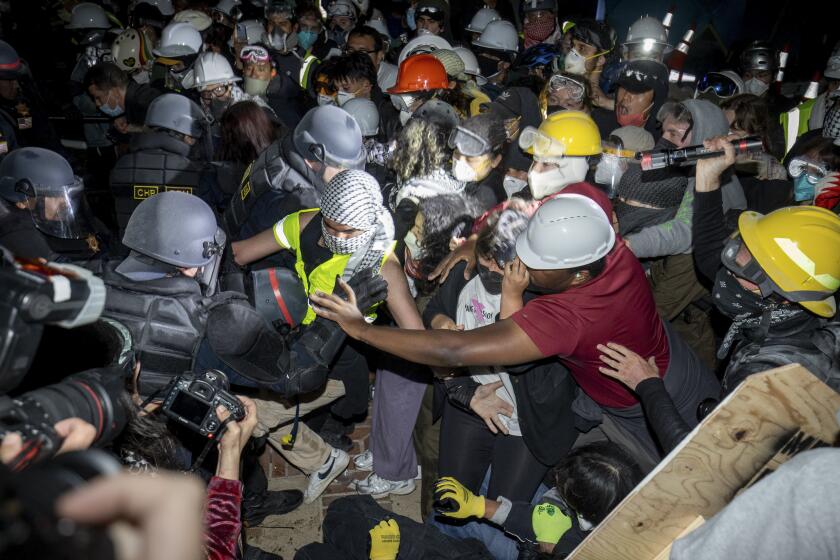Bickering Marks Start of Talks on Reducing Weapons in Balkans
The long process of trying to control and reduce arms in the embattled Balkans was formally launched here Monday as foreign ministers, ambassadors and representatives of international organizations and observer nations met to discuss what form further talks should take.
“There can be no peace in the former Yugoslavia if some parties to the conflict remain heavily armed and others try to catch up with them,” said German Foreign Minister Klaus Kinkel in his opening remarks at the one-day meeting held here.
But, as if to underscore the huge obstacles to achieving peace and cooperation among combatants in the former Yugoslav federation, the Croatian delegation threatened to pull out of arms-reduction negotiations if certain demands were not met “in the nearest future.”
Even as delegates from other countries called on Croatia, Bosnia-Herzegovina and Serbia, which dominates the rump Yugoslavia, to set aside their grievances and learn to compromise, Croatian Foreign Minister Mate Granic complained “a part of our sovereign territory is under occupation and time is running out.”
“The peaceful re-integration of Eastern Slavonia is the key to the lasting stability in the region,” Granic said, referring to much-disputed lands claimed by Serbs and Croats. “Without it, we all face the danger of another round of hostilities and the destabilization of the whole region, with highly unpredictable consequences for Bosnia-Herzegovina as well.”
Conference participants said Yugoslav Foreign Minister Milan Milutinovic scolded his Croatian counterpart for grandstanding--but then made his own threat to pull out of the arms-control negotiations.
Noting that the government in Belgrade, the Yugoslav and Serbian capital, has been suspended since 1992 from the Organization for Security and Cooperation in Europe, Milutinovic said that, unless full membership is restored, Yugoslavia “will be prevented from cooperating, despite its readiness to do so.” The OSCE is to oversee the next round of Balkan arms-reduction talks.
Michael Williams, a senior fellow at the International Institute for Strategic Studies in London and former U.N. spokesman for Croatia, called the early threats from Croatia and Serbia “a worrying development, an ominous development.”
“It’s really not clear to me that the parties are willing to engage in any arms control in a meaningful way,” he said, echoing a fear expressed by some delegates to Monday’s meeting that the Yugoslav parties don’t want to negotiate away their ability to use violence, or its threat, to seize territory.
Monday’s talks were organized to fulfill the combatants’ pledge, made in Dayton, Ohio, to begin talks “to enhance mutual confidence and reduce the risk of conflict” within seven days of the peace accord’s formal signing. Monday’s agenda was limited to setting the formal process for the coming weeks.
In the next phase, the nations that signed the Dayton accord are supposed to report how many tanks and armored vehicles, heavy artillery pieces, combat aircraft and attack helicopters they possess. The data will be used to establish base lines, from which weapon ceilings can be agreed on. If the nations can’t agree on such ceilings in 180 days, they have promised to accept a set of automatic limits.
Kinkel said delegates Monday had been unable to fix a date for the next round of talks but said the meeting would be Jan. 4 or Jan. 7 in Vienna. He said minor problems kept delegates from choosing a firm date.
More to Read
Start your day right
Sign up for Essential California for news, features and recommendations from the L.A. Times and beyond in your inbox six days a week.
You may occasionally receive promotional content from the Los Angeles Times.






